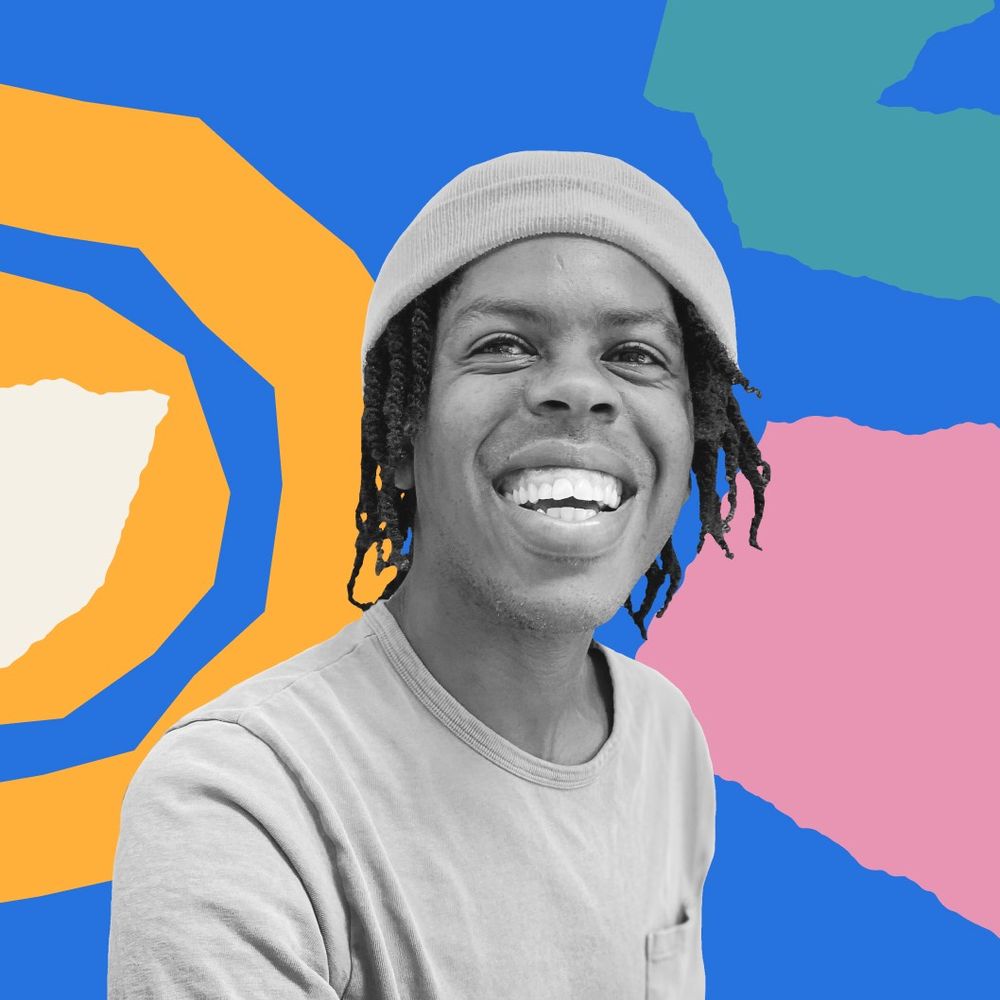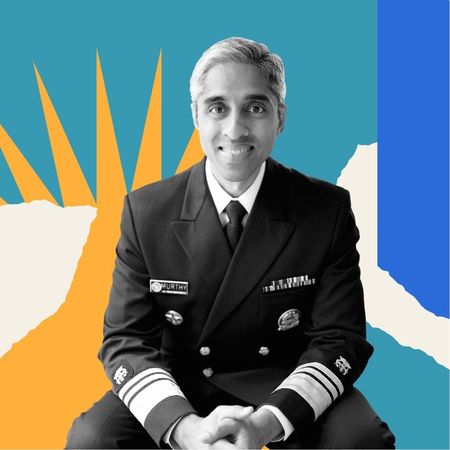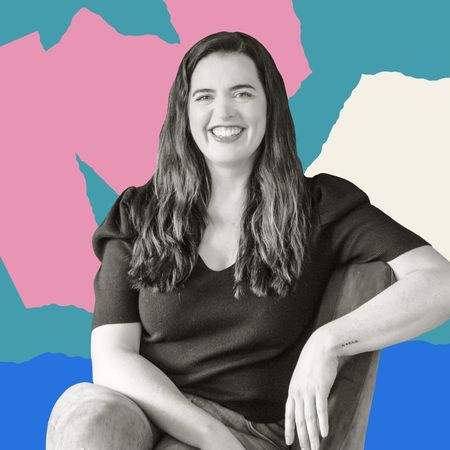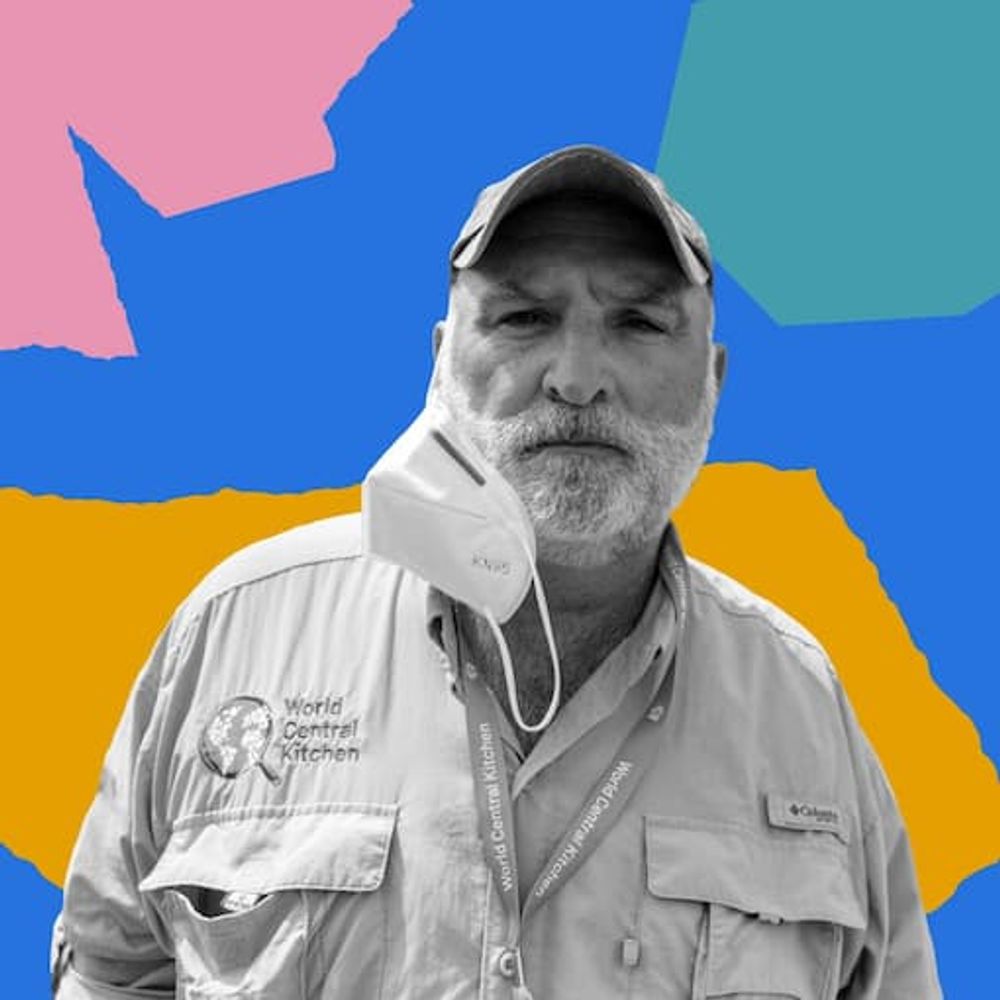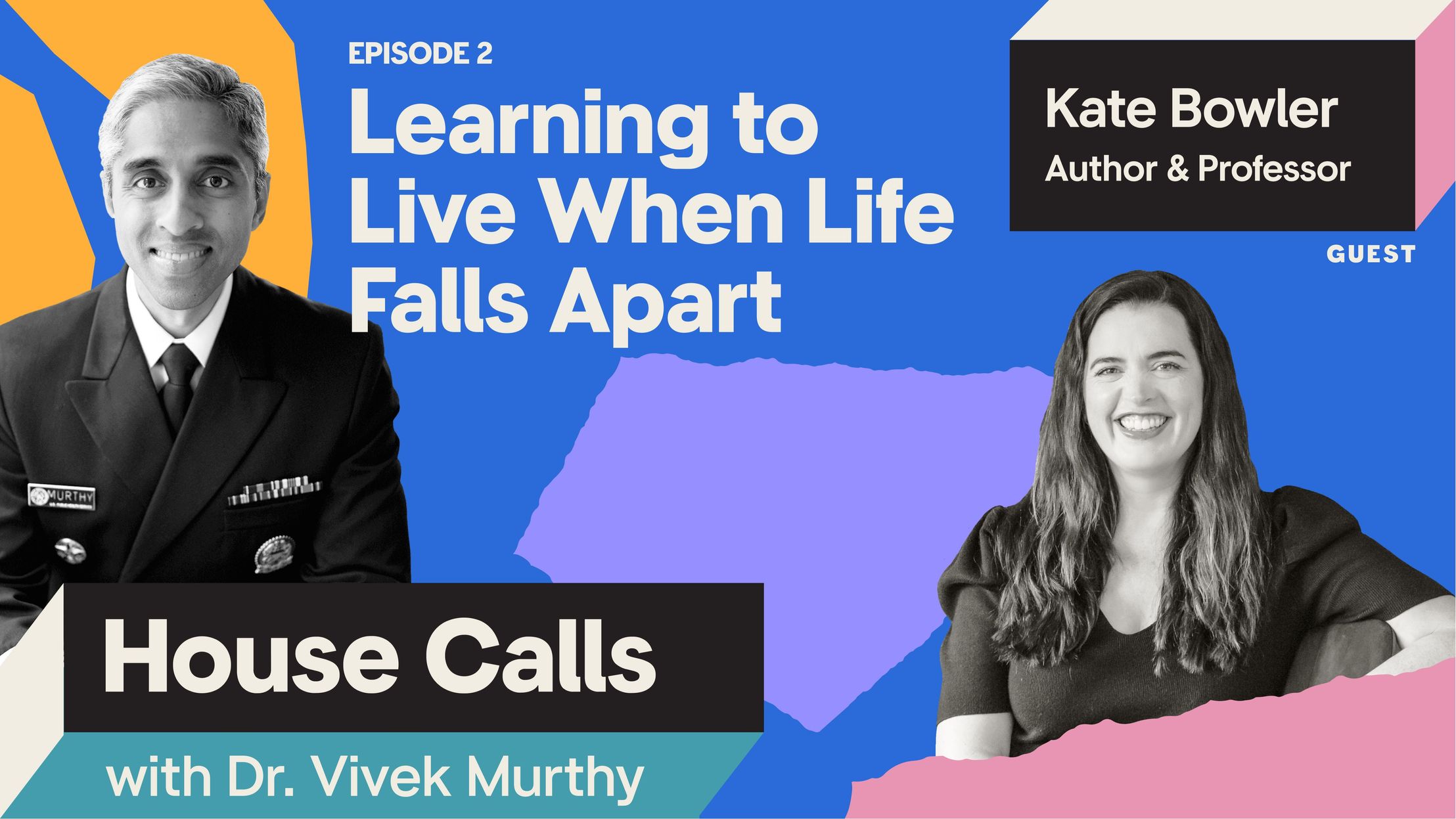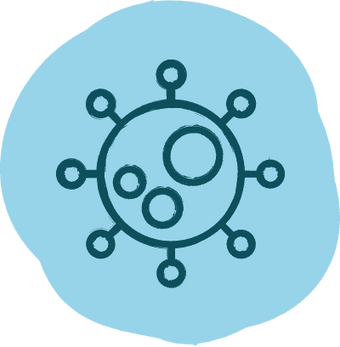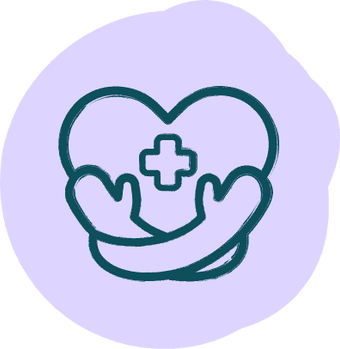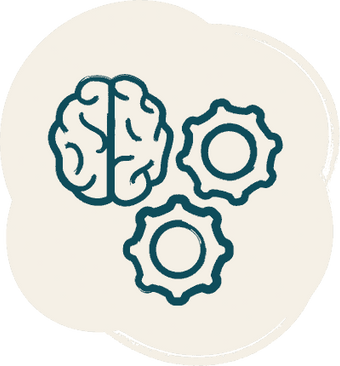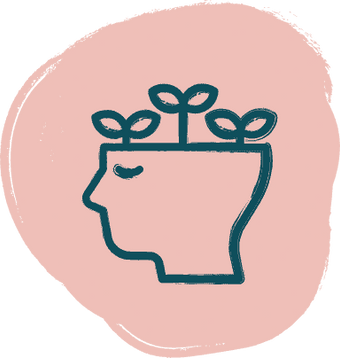- Dr. Vivek Murthy
Hello and welcome to House Calls. I'm Vivek Murthy and I have the honor of serving as U.S. Surgeon General. I'd like to introduce you to Kate Bowler, Duke professor and New York Times best-selling author. We believe conversations can be healing. And today, we'll be talking about embracing the messiness and imperfection of life. This episode holds truths we all need to hear.
- Dr. Vivek Murthy
Kate, I am so excited for us to have this conversation. Thank you so much.
- Kate Bowler
Oh, me too. Hello, my friend. It's very nice to see your face.
- Dr. Vivek Murthy
It’s good to see your face as well. I was thinking before we got on this recording that you and I have actually never met in person before, which seems strange when I thought about it because I feel like I know you, even though we've only had a few conversations. But one of the things I really love about you is you reminded me how even in just a couple of interactions, you can really come to know someone well, or at least feel like you do and feel very comfortable with them, and that's certainly how I feel with you. And I feel like I've gotten to know you through your voice, which I associate with two qualities, with kindness and peace. Those are the two things I I feel when I when I hear your voice. So, I'm so glad we're doing this.
- Kate Bowler
That's so nice. Oh, well, that it's a it is a wonderful and strange thing that we can all still feel connected. Because when I think of you, I always think of connection and all of your work on loneliness and just how much these interactions mean to all of us. So, yeah, you're a you're my go-to guy when I always think, why do we all need this so much? What is this craving inside of us to be known and to to know and and strangely, I know an expert about that. It just happens to be the Surgeon General.
- Dr. Vivek Murthy
Well, you know, I was speaking of the strange times that we're in how have you been during this pandemic? It's been such a tumultuous time for everyone. But what's it been like for you?
- Kate Bowler
It's been pretty bumpy, in part because I have like health precarity, because I have to live with chronic cancer. So that's, I think that's just kind of always means that my mind and my heart is on all those of us who who get boxed out in a health crisis. On the other hand, it's also been a time of tremendous creativity because the second that we all had to change the way we do everything. So, I'm a professor. I had to teach online. I had a podcast. All of a sudden I was never meeting with anyone in person. It became a different way to think about community and love and friendship. And strangely, that has meant that I am I'm sort of busier and connected in a different way than I was before. So, it's been a bit of a mixed bag.
- Dr. Vivek Murthy
Hmm. Well, it sounds like you found some ways to find silver linings in this difficult time. And this is actually one of the reasons I was so excited to talk to you today is because you know, during these times of uncertainty and pain and loss and grief that many people have experienced over the last two years, I think sometimes these can lead us to darker places, but sometimes miraculously, they can help us find better paths forward and know there's no one better than you, I was thinking, to talk to you about this because even before the pandemic, you went through an extraordinary and difficult experience where you had to grapple with pain and loss and grief and uncertainty. And I was wondering if you could if you could tell us about that when you were 35 years old, about the diagnosis you received and about how that affected your life.
- Kate Bowler
Yeah, I, it was a very stark before and after in my life. My 'before life' was I was trying to be a very shiny professor. I had like a very clear plan of the, of the, illustrious life of a professor that I would lead and my many grateful graduate students. And, you know, I really had no there was no dramatic health issue in my family. And so when I was all of a sudden the one with stage four colon cancer and wasn't likely going to survive the year, I really it really called into question the kind of natural optimism that I had about the idea that my life was always going to be the one that works out. And it was certainly the area of my intellectual study because I had written this book on the whole idea of "blessed," that like God will reward you if you have the right kind of faith. And I had sort of adopted a de facto I work hard. I'm reasonably kind. Surely I deserve, you know, dot, dot, dot… And and so when I realized I couldn't, I didn't really that that wasn't the right that wasn't a framework that was going to guarantee me a single thing. And that in life we are promised so little. It really turned my worldview inside out. So I realized my job moving forward was to find a way to live with any kind of meaning and truth and beauty inside of a very uncertain life. So at first, the uncertainty was I really only had 60 days to live at a time because I would go in and get scans, and then if it went well, then I would be given the drug for another 60 days. So I, I really only got two month windows. Gradually, three month. Gradually, six month. But all of it taught me we don't, we're not guaranteed a future and it is hard to live that way. But, but, but, but if we know that I think we can be broken open to other people's uncertainty and other people's fear and other people's pain in a way that I don't think I would have if I'd been so sure and so confident that my success was guaranteed
- Dr. Vivek Murthy
Oh my gosh. I was thinking when you were talking about living life in sixty-day increments, just how excruciating and difficult that must be, especially given that you had a small child at the time, Zach. Yeah. And now Zach is in second grade, is that right?
- Kate Bowler
Yeah. He still has like giant flashlight eyes. I feel like 80% of the weight of his head is just eyes, but I think that's partly what felt impossible is, is that the more we love, the more it hurts. The more we're, the more we know that that people depend on us and there are lives that there are people who can't live without us. And I think it means that I can't just be like a hopeful person or an optimistic person. I have to be someone who knows how to grapple with fear, because the second I look at him, I feel both things like a love that feels like it's going to explode my heart and and also like a fear that I might not always get to be the person that that makes his life fun or beautiful.
- Dr. Vivek Murthy
My gosh, that is it's on the one hand heartbreaking and also inspiring to hear you say that because I'm thinking about this as a dad myself. I have two small kids. They're five and four. And my wife rightly accuses me of being an overprotective parent. I'm very attached to my kids. But, you know, I had a health scare, you know, some time ago, not anything near the extent of what you experienced, but even that mild scare, like, I just remember the thoughts flashing through my head of not being there for my children when they grew up. And it it felt like it would break me. I mean, it was just I didn't it was painful in a way that I hadn't really experienced before. And just truly wrenching. And you somehow managed, I don't know how you did, but you somehow navigated these extraordinary many, many months of uncertainty, not knowing if, you know, taking them the treatment was going to result in a better outcome and give you another sixty days of life and this time with your family. How did you navigate that uncertainty? Like where did you find your strength?
- Kate Bowler
Well, maybe I guess I kind of had to give up on strength as my primary purpose, my primary paradigm. Because I you know, I am not American, but I am, you know, I'm Canadian and so Canadian that I just want to bring it up right away. You know how they are? But, yet I have such a de facto American set of beliefs that, you know, in the power of the individual and bootstrapping and, you know, going going it on my own and that was probably the first thing that had to go was if I'm going to do this right, trying to figure out what right is, I'm going to have to learn how to be carried. I'm going to have to learn how to let my weight be be held by other people. Weirdly, that was things like learning how to be delight-able. Like when you're you know, you know, when you're just your life is full of unfixable problems and nobody really knows how to fix your, you know, help you. And the truth is they can't. Like they can't, I don't have a lab, you know, in the back of my house with which to concoct lifesaving drugs. Like there are so few things we can do for each other, but learning how to how to be to find the joys that count. For me, it was like gummy worms, dumb flavors of potato chips, having just the friends that drive you to enormous statues. Like I went to the world's largest outdoor fryer, which is conveniently located near Durham, North Carolina. Finding finding ways that joy could interrupt the monotony of pain, but also just finding a way to feel useful again. And I think that's something I experienced in the feeling of calling that, like, sometimes our work makes us feel valuable and I don't know, useful when everything disposable about your body and your illness makes you feel useless. So I, I did some writing, I made podcasts. I did things that helped me feel like I could use gifts that I could dig out from inside of myself. And that gave me a sense of dignity that kind of very quickly went away the second that I felt sick. So, work and delight, and realizing I would need a much better account of interdependence were kind of the ways that I made it through those first couple, those first couple years.
- Dr. Vivek Murthy
Wow. It sounds like it sounds like you had to change or rethink perhaps how you define strength, in a sense. Is that what I'm hearing you say?
- Kate Bowler
Yeah, I think that's exactly right. I I would always prefer to do things on my own and to be the giver and not the receiver. It made me feel a little ridiculous. Like when you have to get carried to the bathroom or, you know, you can't really eat the thing they put on your plate. Or, like all the neediness, it felt terrible. It felt like I was kind of using up all of my like the goodwill of the people who love me. And and when you realize you might not be able to, like, pay everybody back, you know, and even up the invisible ledgers, I think that pushed me into a different account of what love is. Like, there's not going to be good math on this. And sometimes, even when other people are the ones that are the givers or they feel that you feel like everybody else is giving you way more than you can give them, that is one of the weirdest things about love is sometimes like, like it's a bad comparison, but when we have like a dog or like a something we love, that's a dependent we love them as they need us. And that's something I think all caretakers feel is dependance isn't just a burden. It feels good to love others. So I needed to learn that people actually, when they could bring the special grippy socks for when I was in the hospital or, you know, or like share a stupid Netflix show that actually it was making us closer than we would be if I just pretended to do it by myself.
- Dr. Vivek Murthy
Mm hmm. That interdependence that you're referring to, that it's so powerful and so tightly connected with love. And I'm resonating with what you said in the beginning, which is that there's something in modern culture which makes us feel that we are weak if we are interdependent, if we somehow rely on others for anything, whether it's our our entertainment, our sustenance, our security and safety. But that's just how we are. It feels like an acknowledgment of reality and nature to recognize that interdependence is the nature of humanity and not some sign that we're somehow not enough, you know?
- Kate Bowler
Yeah, it's not like a failure or an aberration. We’re like built that way. Fragile at the beginning. Fragile at the end. Just wonky in the middle. Yeah.
- Dr. Vivek Murthy
Yeah. You know, I think about about Zach, actually, as I've been thinking about this interview. I've been he's been on my mind a lot. And can I just ask you, how is he doing?
- Kate Bowler
Yeah, he's, he's great. I think, honestly, he's kind of my biggest reminder which honestly, it feels kind of like a miracle when I see him. He seems so untouched by how awful it's been. And I know when I look at him that that's not because of me. Like, I mean, I did a pretty good job of being knowable and, like, you know, like keeping the gates open so that even when things were hard, it was we could always be close. But when when I really couldn't, I couldn't pick him up because of surgical incisions. I couldn't, I mean, I had chemo packs on layers of other chemo packs. I mean, I was it was hard to be the mom that I wanted to be. So when I look at how hilariously confident he is, that everyone in his life loves him, the wild and inappropriate self esteem that only an eight year old can have. I realize like he's my perfect example of what a group project looks like because we had people in and out. We've had family and friends. We were not an island. That that honestly, Vivek, that that reminds me so much of your work. Like, we really when we feel fragile, like the worst version is then that we try to accept loneliness as our burden. And so when I when I see him, I was like, oh, that, that kid had a lot that, that kid was not on an island. And that's why I and that's why he he doesn't believe that life is something you have to do by yourself.
- Dr. Vivek Murthy
That's so powerful, what you just said there and I feel so happy to know that he had it sounds like a village to support him. Yeah. Especially during your toughest times with your health. You know, if I think about the pandemic and what's been happening, to use your analogy of being on an island, a lot of people do feel like they've been on an island during these last two years. And I think about parents a lot during this pandemic because parenting wasn't easy before the pandemic by any stretch in modern society. But I feel like it's gotten really tough even tougher for many parents during this pandemic. And part of the reason not not even just having to navigate how to get your kid to school safely, you know, with everything happening with the virus, how to manage your work, how to telework, home school when you need to, all this kind of stuff. But even above and beyond all of that, it's not having all of the supports around you that many people had before the pandemic. And what I'm curious about is, is how when you think about parenting now, when you think about the importance of that village, like how have you built your life for you and your husband, for Zach, and in a way that you have that village? And I'm curious if you have any advice for the rest of us out there who are parents trying to figure out how to how to build that village or how to make choices that will give our kids that kind of support like what should people think about these decisions right now, because I think as tough as the time is, this is it may be an opportunity for us to pivot in a new direction.
- Kate Bowler
Yeah. Yes. Yeah. Because especially during the first long stretch of the pandemic before vaccinations for kids, it was I mean, the the health precarity that everyone was experiencing. Then the remote learning. And Zach, like most kids I know are is is behind and and and watching him get stability from an in in-person classroom this year has been such a wonderful reminder that it's not just our our family and our friends that we need. It's our teachers and our reading specialists and, you know, this incredible community of experts that we get when we when we have the joy of being plugged back into a larger community. And I it's been there's almost like a you go through a long stretch of survivalism where you do the best you can, stripped down to the studs and I know all of us are constantly making adjudications about what other supports we can afford to have based on the health situation of our families. But it has really reminded me that, one, I was never going to be able to be a great first and second grade teacher on my own, and that and that and that the support of others is integral to the development of my kid and also that like a progress narrative this you can do anything is also just not realistic. Like we're trying to make up for things we've lost and it's OK to say that we've lost them. It helps us be realistic and then face those gaps with courage. But it also then, if we admit them, doesn't force us back into that kind of collapsing embarrassment narrative that like that it's it's this is not the situation we would have chosen. We will we will accept reality with love and openness. But man, we none of us really were going to be able to, I mean, unless you're just a fabulous Little House on the Prairie homesteader. Like I was with me at the piano. I mean, it is, it has been rough days for parenting. And to me, the the the light at the end of every tunnel has always been that other people will come to the rescue. Hmm.
- Dr. Vivek Murthy
Yeah, that's so beautifully put. You know, I think one of the other things it's been tough about parenting during this pandemic has been realizing for many people that maybe some of the things that we worried about before maybe don't matter as much and trying to figure out how to recalibrate and focus on the stuff that does matter. But when you think about your own life both, not just through the the health scare that you went through, but also this pandemic, like how is your measure of your life changed in terms of what's meaningful, what's worth pursuing?
- Kate Bowler
I guess the first thing that comes to mind was related to the kind of parenting prosperity gospel. It was the idea that as a middle class person, that it is my job to create basically an extended finishing school for my child, who will have just a wide assortment of personality enhancing hobbies. And, you know, when I look at what like a good life means, when I look at my kid and the other kids in my life that I get to help raise, like I, I can if it really feels like the, the barometer for what success is has really changed for me. It's like are they, do they have a sense of, of, of goodness and equilibrium with other people's feelings and needs? Are are they creative and not on screens 24 hours a day. Are they, I mean it's been really nice to give up the sense that my worth as a mom is somehow tied to whether, you know, little Johnny is really crushing at soccer lately. So it has helped me give out like a parenting prosperity gospel. The idea that I need to, you know, he needs to win in this culture. I think it's also the thing that I felt most acutely with being sick was that OK, well, my life is going to be a chronic condition. But now with what we've all been carrying as a culture, I think that's it's given me that that broader sense like yes, like our lives are a chronic condition. We are not we don't are we're not given a promise future. I'm obsessed with being the person that always makes the fun plan. And oh, next summer we should and we all find that our plans continue to come undone, but then we have to remake them. So I guess lately it feels like success is that I am constantly replenishing my hopes. I'm constantly putting a beautiful thing in front of me that I have to work for, but doesn't burden me something that makes me right, size my loves to my fears in my life. But then also that I can be the kind of person that looks to the past great things that have happened, like the miracle of an untouched kid, and I get to say like, thank God that is already mine, you know? So that it helps, it helps when I know that there isn't there's there's just no there's no straight path anymore, but but there can still be enough beautiful things.
- Dr. Vivek Murthy
Yeah. You know, that's actually, I think, related to this, this topic I think about with especially with you know, as we try to raise our kids and not totally screw it up, my wife and I. She's doing a great job. I worry about me sometimes. This whole question around ambition and how to think about ambition. How to cultivate it, but in the right way for our children. That's something I find myself grappling with. Can you help me? How should I think about ambition and how to teach our how do we teach our kids about healthy ambition?
- Kate Bowler
Oh, I I'm just going to I'm just going to try something and then you're going to tell me if it sounds right. It's just been something I've been really, I guess, like fussing over is there's a there's a thing I learned to do as someone who just was working really hard in one area, like my I always wanted to be a historian. I just loved doing, like, archives and databases. And, you know, I just I loved my particular thing. But then when I got really sick and I, I kept having to rebuild after, you know, the diagnosis or after a surgery, like, I kind of have to start from scratch with my body and my life and what I was able to do. I really feel the value of, of learning to try like, like just being able to have a clear view of the of your resources of the day, the week, the month, and say like what is possible today and like not and give up the everything is possible because that is just a, just a beautiful American heresy and we're just going to let it go and and and we are not going to slide into nothing is possible because therein lies despair. And also it is not true. We are built to try, but, but finding that kind of like point of traction is a is a thing that I I mean, I love to watch it in other people. I'm the kind of person that cries at a gym when I see a woman do a pull up. I’m like, it's like it's so hard, you know. But like that to me is the thing I want to try without breaking the paradigm. So I want to teach him to learn the joy of trying without saddling him with the weight of perfectionism. Yes. I think that's got to be really hard, right?
- Dr. Vivek Murthy
Yes, it is really hard. Especially that perfectionism piece, which is why, and that’s the question, is, how to how can we encourage our kids to to strive and to thrive without being constrained and shackled by some arbitrary or external metric?
- Kate Bowler
Yeah. Yeah. Because we're made we're like transformed in the trying.
- Dr. Vivek Murthy
Yes, that's right.
- Kate Bowler
I, I mean, I've one of the just most mundane little microcosms for this is like, hey, child of mine, would you like to have an enriching hobby? Of course, these things will also look good on a college application, but wouldn’t you really appreciate… So I was like, Zach, you're going to love to play cello now. Here's a cello. I play cello. Now we play cello. Right? It's just it's terrible. And absolutely transparent. And I was like, Zach, wouldn't it be so nice for you to have this hobby that you can enjoy your whole life? And he puts this little hand on my shoulder. And he says, with so much disappointment he goes, “Oh, mom, but I love to pick up sticks. And I could do that my whole life.” Just like, Oh, OK, I hear you. Yes. Appreciate the moment. But I’m trying to always find a staging ground to let them practice making progress, learning more about themselves, developing those habits of resilience without them putting them into the exhausting, overachieving super train of where they're chasing a future that that might not always be. You know, they might change. The world might change. We know that adaptability is is like what we're all learning right now. How do we live? How do we teach them to live with precarity and at the same time want to build skills that last. That seems like a fine line to land this on.
- Dr. Vivek Murthy
And it's interesting because as much as the world is changing and it will continue to change, Kate, it seems like, and you and I have talked about this in the past, that one thing that doesn't seem like it's changed over the generations is the fulfillment that we get from deeply meaningful relationships with one another. And I find myself thinking about that a lot with regard to my kids. How to give them a foundation for building healthy, loving, honest, open relationships. It doesn't have to be with hundreds of people, could just be with a couple of people who are close friends, family members. But gosh, I so wish that for them.
- Kate Bowler
You said you had, though, find your three, right? You said find your three people.
- Dr. Vivek Murthy
Oh, gosh, you have a very good memory.
- Kate Bowler
Oh, I love I love your stuff. I think it was so when you said that it was so reasonable, you said you don't have to have a million friends. But but but go through the process of trying to find your three. And I, I've asked a number of people that like if they can name their three. And I found especially with with men, frankly, in their in their thirties and forties that they had there had been a lot of attrition in friendships and that they hadn't that it was hard for them to name three. But what a beautiful opportunity to say, well, if there's a spot open like great auditions, auditions are happening now. Everyone welome.
- Dr. Vivek Murthy
I love that. I love that. You know, Kate, I want to also just I want to think about, talk about your book for a moment. You had several, but most recently, the one entitled “No Cure for Being Human.” And I got to say first, I love that title. I think it's it's both whimsical, but it's so deep and profound in terms of the the message behind it. But tell us a little bit about that title and what what you were thinking of, because I believe there's a powerful, deeper message behind it.
- Kate Bowler
I guess when I was really sick, I started to wonder if my problem was time, like whether I just, you know, I don't have enough of it. Is there a way to make my life more meaningful with bucket lists? And I found myself kind of ramping up to try to solve the problem of a limited life. And then I realized that what I was doing was probably like the worst forms of neoliberalism in late stage capitalism, which is we make ourselves a problem that we're going to solve. And I thought that that my finitude, my just creaturely-ness and limitations and humanity was the problem. And once I started really also, I'm just so great at parties I'm like, well, there's no cure to being human. I realized that that that if I accept that this is our, this is the core of what it is to be a person, to be in this body, in this life, in this room, then maybe my job then is not to solve that like a problem, but to to learn to find the richness and the beauty and the truth of it without trying to escape it. And that made me feel, frankly, less claustrophobic about a body that breaks down and about a pandemic I can't change, and about the feeling of constriction, but just enough to kind of give me the space to, like, push the walls out as much as I can and to live my life like this, without the embarrassment that I felt when I was first, you know, the person that couldn't fix their life, you know, the tragedy. It gives me a different paradigm to be a human again today. Hmm.
- Dr. Vivek Murthy
It's so powerful what you just said about the shame you felt in not being able to fix your life. And, you know, looking at it objectively, you had a serious illness and nobody would have expected that you would be able to solve stage four colon cancer on your own.
- Kate Bowler
Oh, they did, though. Oh, they did, yeah. Yeah. Oh, my gosh. Did you, so I, I wrote an Op Ed for the New York Times, and I forgot to take my email off the bottom. I don't know why. And I got hundreds and hundreds and hundreds of pieces of mail of people explaining to me how to solve my own colon cancer diagnosis, so…
- Dr. Vivek Murthy
Oh, my gosh,
- Kate Bowler
Faith, so faithfulness. Could I try faithfulness, smoothies, I mean, from secular to religious arguments. And also with colon cancer, it opens itself up to critiques about whether about my diet or but I immediately received the message that I that I really just needed to learn to try. And so abandoning the you can always fix it and then trying to find those points of agency, but not unlimited agency was like that was to me the hardest part of that first year.
- Dr. Vivek Murthy
Oh, my God. I cannot believe you received all of those messages. Wow.
- Kate Bowler
It's always like, thanks, Gary from Indiana. It's always good to know my faithfulness, faith, faithlessness is murdering me. And surely God is a just God to let me die. Thanks, Gary.
- Dr. Vivek Murthy
Oh, I'm so sorry that you experienced that, especially at that moment to receive those kind of messages. Oh, you know, I can't even imagine how that would feel. But, you know, the thing that I find striking about what you're saying also is that the sort of shame that we feel in not being the problem solvers for every challenge that comes into our life, I think is a it really hits at the heart of I think what might be wrong in part with how we see ourselves in society is like having to solve every problem, and and there's and there was a teacher I like who once used to say that in life, in modern life, we have skewed our balance from both being and doing to solely doing. We focus less on being less on being, and I think of being as observing, experiencing, appreciating, witnessing, processing and understanding, as opposed to doing which is much more action oriented, trying to figure out how to line up the five specialists who are going to take care of this problem and identify the five tools that I need and the right timetable, et cetera. And you got to have a balance of both, obviously, but it does feel like we are so focused on action that sometimes those people in society, including our children, who may be more inclined to observe and to appreciate and to be in the moment, sometimes I think those that's its own superpower and it goes underappreciated. Can I ask you, I know our time is coming to a close, Kate, but I would be remiss if I didn't ask you about your faith, about faith and you obviously, faith is such an important part of your professional life and it's been part of your life from the early earliest years. But I wonder the experience that you went through how did it impact your own personal faith?
- Kate Bowler
I would be lying if I didn't say I wasn't very angry at first, especially when I felt like I, I had, you know, it's like these are all the things you're not supposed to say as a Christian where you're like, I deserve, I deserve a great life or you know, I was a good Christian. But I like, you know, I worked at a divinity school. I cared about people, spiritually. I felt I felt an outrage that I had to reconcile with my expectations for what the world whether the world was supposed to bend to my experience of it. And, but simultaneously, I also experienced such a sense of tremendous love that it that never really went away. Once I couldn't care for myself and this I was going to have to need a whole community to carry my life and my family's life forward, I knew something then about the love of community that I had preferred not to learn before. And that taught me a lot about church and about the way we are meant to love our neighbors. And I but I guess the intense sense of being, like, valuable in a system where, you know, you're always wearing a rough cotton gown and you have to give up your body so fast and to feel like so loved all the time by God and by other people really did it really did change my sense of like what we're for, I guess, as people. So it helped because then all of a sudden it was very weird because it just it was like a matrix feeling. Like, once you can see your own undoing, you can sort of see the fragility of everybody else's. And then I felt like I just couldn't unsee it. And that made me feel like I belonged to everybody and all of their mess, too. So that was one of the most transforming experiences of my life. But yeah, it went from a real rage fest to, to a sense of like pretty consuming love.
- Dr. Vivek Murthy
That's incredible. I just want to say that I mean, that is absolutely incredible. I mean, one of the reasons that I so love and admire you is because you have despite all the pain you've been through, all the hardship, also despite all the uncertainty that you've had to contend with in your life, you still have found a way to center your life on love and to find a way to somehow transform this experience into greater empathy for other people and their experiences.
- Kate Bowler
And I just so thank you, friend.
- Dr. Vivek Murthy
That's so true. I mean. That's not just you saying it. I hear it when you're in the conversations you have with others. I, I read it in the, the words that you write in your books. It is coming from such a deep and genuine place, but it's that kind of empathy and that sort of love that I, I feel we need more of in the world. And that's what will help us heal. And you just have that in spades, and I'm so grateful to you for sharing that, with all of us.
- Kate Bowler
That's so nice. Thank you.
- Dr. Vivek Murthy
It's true.
- Kate Bowler
Thanks. Because when I, when I see you, I see someone who made love into service right away, so that does not go unnoticed. You're like, it's a really lovely thing to see up close.
- Dr. Vivek Murthy
And thank you. That means a lot to me. Kate. you know, as we close, I'm going to ask you one fun thing, and then I'm going to ask you if you'll actually close our conversation with a blessing, which is something I love that you do on social media. But one of the things I love about you is also your laugh. You find a way to find humor and to bring laughter to incredibly serious and challenging topics, which I so admire. But when's it time that you, when's the last time that you laughed uncontrollably?
- Kate Bowler
Uuuuuhm yeah. My kid was pretending to do magic after he'd seen the Harry Potter invisibility cloak. And I looked over and he was holding, he was wearing clothes. And he was like, woo, you don't see me. And I was like, OK. I look over again and he's not wearing a shirt. And he's like, ooh, you only see pants. And I was like, OK. I look over. He's completely naked, holding an enormous bag of chips that I told him he couldn't eat. He's like, Oooo! You only see chips I'm going to eat. And then, like, ran sprinting away as fast as he could. And, like, the way he committed to nudity in a long form joke, where I was, I was like, you are, you are my son in whom I am well pleased.
- Dr. Vivek Murthy
Oh, my God. That's so funny.
- Kate Bowler
I was very impressed.
- Dr. Vivek Murthy
Oh, my gosh. Seeing your child naked running around the house, eating chips. Gosh.
- Kate Bowler
It’s that he had an invisibility cloak on. It was, it was really, really, really powerful, how he worked that out.
- Dr. Vivek Murthy
I'm glad he decided to road test it at home.
- Kate Bowler
Yeah, he did. Exactly. I'll got a call from college. Your son…
- Dr. Vivek Murthy
He's bringing out that invisibility cloak, disturbing the neighbors. Well, Kate, one of the things you do on social media, which I love, is that you often offer a blessing to the public. And I would love if you could close our conversation with the blessing as well.
- Kate Bowler
Oh, sure. Yeah. I love I love that we can just like bless the crap out of each other. And I, I, I love to make fun of, um, sort of slogans that don't help any more, like, carpe diem. And so we just started saying ’crap-e, crap-e diem.’. Like, we will just seize the garbage of our lives. And we will bless we will bless all that we can bless. So I picked a blessing for when there's no cure for being human, if that's all right.
- Dr. Vivek Murthy
Yes. OK. That's beautiful.
- Kate Bowler
God, I feel it again. The burden of being human and the fact that nothing will exempt us from the pain of it. Blessed are we, your human creatures, with mind and soul and spirit bounded in flesh and bone, struggling in the seeming conspiracy against progress, against the perfection that our minds can grasp and our hearts long for. God, how we yearn for the completion of all things. And we try oh, how we try to hurry it along with our self-help elixirs. Slurries, with the touch of truth and a handful of goodness, enough to be effective for a while. The Gospel of hustle or of positivity or Peloton. But then life happens. And we realize all over again that we are human, frail, and finite, and that there's no cure for that, despite illusory promises that say otherwise. This is where we live, in this reality. Come help us in our humanity. Help us enjoy all the beauty that is here, the sweetness that comes to us unbidden. The light that gives us eyes to see. It's not all up to us. Thank heaven.
- Dr. Vivek Murthy
Thanks for joining this conversation with Kate Bowler. Join me for the next episode of House Calls with Dr. Vivek Murthy. Wishing you all health and happiness.
